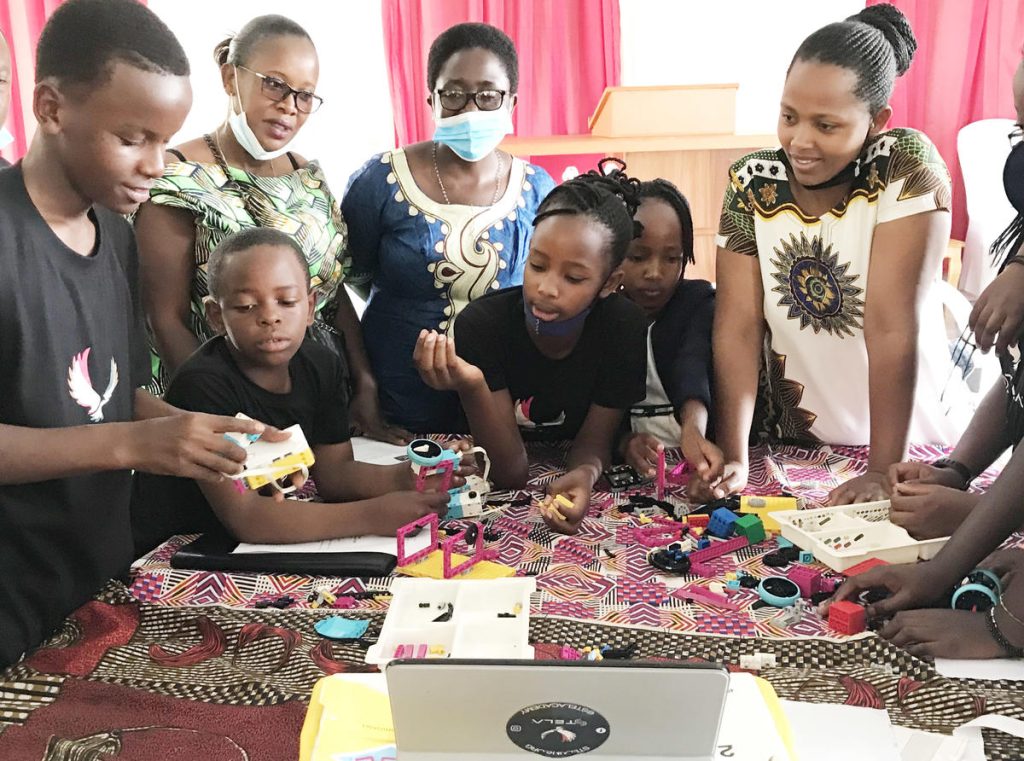Given the importance of equipping students with essential twenty-first-century skills through STEM-related learning, the Rwanda Basic Education Board (REB) has hinted at a plan to integrate educational robotics courses in the National Curriculum.
Diane Uwasenga Sengati, REB Acting Head of the ICT in Education Department disclosed this to the press.
According to Sengati, the education board had launched a feasibility analysis in select schools to ascertain the practicality of including educational robotics courses in the national curriculum.
She stated:
“We are going to test with a few schools so that next year, the robotics course will be in the curriculum. We are looking at what it will take us as well as designing the curriculum.
“We will collaborate with select classes exempt from national exams to avoid disrupting students during the pilot phase.”
Sengati clarified that the feasibility study was a collaborative effort, as REB partnered with GiZ and the Ministry of ICT and Innovation (MINICT) to ensure a thorough assessment of the project and its impact on the academic goals of learners.
“We are also collaborating with GiZ and the Ministry of ICT and Innovation (MINICT) as partners. The project will assess various educational levels, including primary, secondary, and TVET, to determine suitable collaborators for implementation in schools,” she said.
Educational Robotics and Learners
Educational robotics are based on the use of robots and electronic components to help learners explore better ways of incorporating more hands-on, immersive learning experiences that combine innovative technology with real-world connections.
It also offers fun and engaging ways of exploring concepts from the Science, Technology, Engineering, and Mathematics (STEM) courses, amongst other skills such as the 4-Cs: Critical thinking Collaboration, Communication, and Creativity.

Managing Director of New Generation Academy, Jean-Claude Tuyisenge weighed in on the positive impact of teaching coding and robotics in schools.
The MD said students who learn through robotics gain better understanding, and often outperform others who have no exposure to the new ways of learning.
“Teaching robotics has helped students better understand abstract subjects like math, physics, and chemistry. The aim is to make these pure sciences more tangible by applying them practically in robotics projects,” he said.
Tuyisenge applauded REB for the initiative, added that it was crucial for preparing the new generation, known as the Gen Zs, for “emerging technologies”.
“The emerging technologies represent the direction the world is headed. Therefore, we must prepare the young generation for the challenges and opportunities they present,” he said.
Bootcamp on Coding and Robotics
REB Director-General, Dr. Nelson Mbarushimana on July 17, 2023 , officially launched a bootcamp on coding and robotics for primary school children.
The move was in line with the planned inclusion of educational robotics in the national curriculum in Rwandan schools.
The bootcamp had 50 learners from ten different schools located in Kigali, and done with primary 5. It ran from 17th to 28th July 2023, and from 15th to 25th August 2023.
The event was held while schools were on vacation. It allowed learners to learn fun and helpful skills during their time away from the learning space, by engaging in educative activities beyond the regular curriculum.
“You are the future engineers, you really have to use this opportunity, we will be with you and your parents will also be on your side,” Dr. Mbarushimana told the learners.


